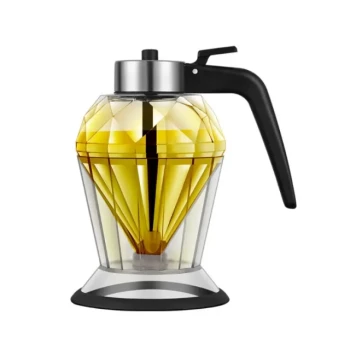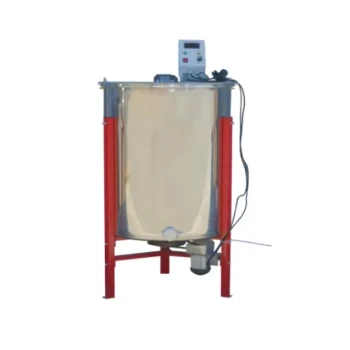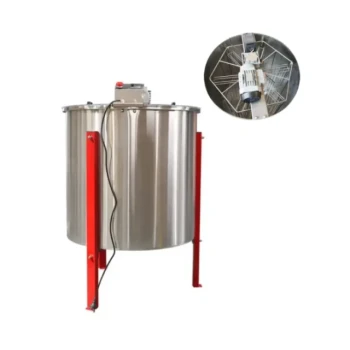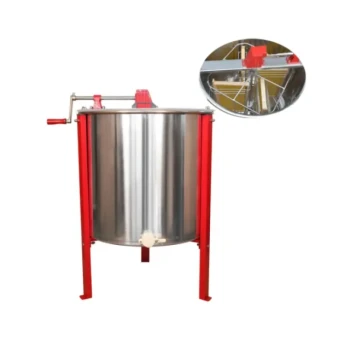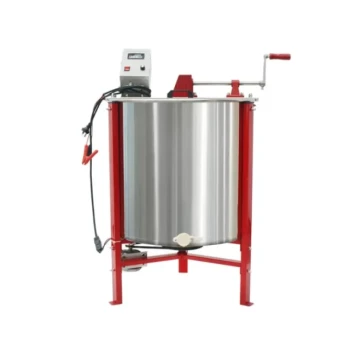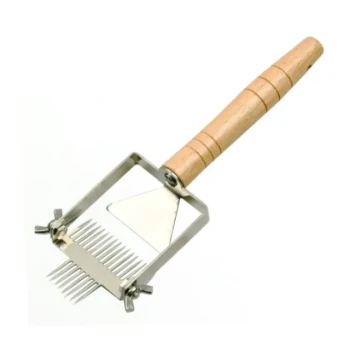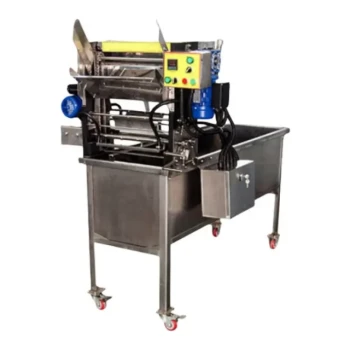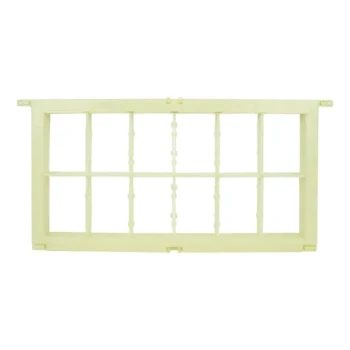The primary benefits of filtering honey are centered on improving its purity, appearance, consistency, and shelf life. By removing physical debris like wax, bee parts, and other particulates, filtering creates a clear, visually appealing product that is stable and more attractive to the average consumer.
Filtering is a critical processing step that transforms raw, debris-filled honey into a commercially viable product. The core decision is not if you should filter, but how aggressively to filter, as this directly impacts the trade-off between absolute clarity and the preservation of raw, natural components like pollen.
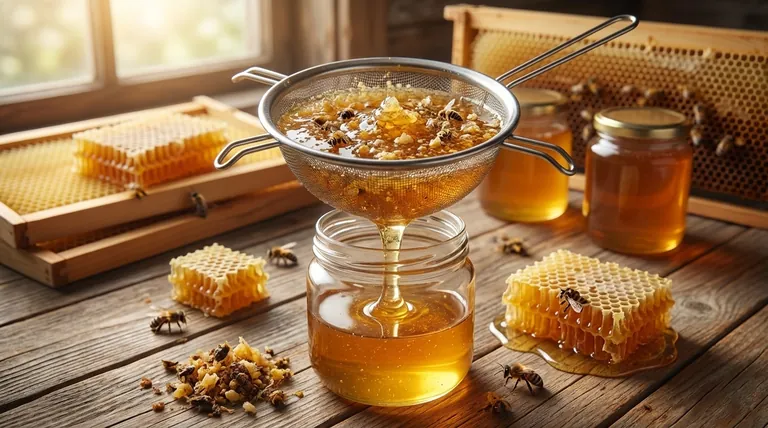
Achieving Product Purity and Visual Clarity
The most immediate and noticeable impact of filtering is on the honey's physical characteristics. This process is fundamental to producing a clean, professional-grade product.
Removing Physical Debris
Filtration is designed to remove a range of undesirable solid materials. This includes wax particles, propolis, and unfortunate inclusions like bee parts.
Eliminating these impurities is the first step toward a cleaner, higher-quality final product.
Enhancing Visual Appeal
Consumers strongly associate high-quality honey with clarity. Filtering removes particles and tiny air bubbles that cause cloudiness.
The result is a bright, clear honey that looks more appealing on the shelf, directly enhancing its marketability.
Ensuring a Consistent Texture
Filtering ensures a smooth, uniform texture free from larger particles. This consistency is crucial for both consumer satisfaction and meeting the quality standards of commercial markets.
Improving Stability and Commercial Viability
Beyond aesthetics, filtering has a direct impact on the honey's long-term stability and commercial value. It's a key process for creating a product that can be stored and sold effectively.
Extending Shelf Life
The process removes potential contaminants that can contribute to spoilage or unwanted fermentation over time.
By creating a purer product, filtering helps preserve the honey's freshness and quality, ensuring it remains in optimal condition for a longer period.
Delaying Crystallization
Filtering helps remove tiny particles, including fine sugar crystals, that can act as nucleation points for crystallization.
While all raw honey will eventually crystallize, a well-filtered product remains liquid for much longer, which is a significant advantage in a retail setting.
Meeting Market Expectations
For beekeepers who sell their honey, filtering is essential for meeting regulatory standards and consumer expectations. A clean, clear, and consistent product is a baseline requirement for commercial success.
Understanding the Trade-offs: Filtering vs. Purity
While filtering offers clear benefits, the method and intensity of the process involve important trade-offs. The goal of absolute clarity can sometimes conflict with the goal of preserving the honey's most natural state.
What Constitutes an "Impurity"?
For a commercial producer, an impurity is anything that isn't pure honey, including wax and pollen. For a consumer seeking "raw and unfiltered" honey, pollen is a valued component, not a contaminant.
Understanding your target market is critical to defining what should be removed.
The Risk of Removing Beneficial Pollen
Aggressive, ultra-fine filtering can remove most of the naturally occurring pollen from honey. This is a significant drawback for health-conscious consumers who seek out local honey for its pollen content.
This process can diminish one of the key selling points of artisanal or raw honey.
Impact on Natural Enzymes and Flavors
Gentle filtering can be performed while preserving the honey's natural enzymes and delicate flavor profiles. However, processes that involve excessive heat to make the honey flow easier during filtration risk damaging these valuable components.
The key is to filter with minimal heat to maintain the honey's raw qualities.
How to Apply This to Your Goal
Your approach to filtering should be dictated entirely by your final product goal and your target customer.
- If your primary focus is maximum commercial appeal: Employ a fine filtration process to produce exceptionally clear, stable, and consistent honey that meets broad retail standards.
- If your primary focus is the "raw and natural" market: Use a light straining or coarse filtering method that removes large debris (wax, bee parts) while intentionally preserving the beneficial pollen and natural enzymes.
- If your primary focus is operational efficiency: A honey filtering machine, regardless of filter size, streamlines the extraction process for operations of any scale, from hobbyist to commercial.
Ultimately, filtering is a tool that allows you to precisely control the final quality and characteristics of your honey.
Summary Table:
| Benefit | Key Outcome |
|---|---|
| Purity & Clarity | Removes wax, propolis, and debris for a visually appealing product. |
| Extended Shelf Life | Reduces contaminants to prevent spoilage and fermentation. |
| Delayed Crystallization | Removes nucleation points to keep honey liquid longer. |
| Commercial Viability | Ensures a consistent, high-quality product that meets market standards. |
Ready to achieve professional-grade honey quality? HONESTBEE supplies commercial apiaries and beekeeping equipment distributors with the robust, efficient filtering systems needed to produce clear, stable, and market-ready honey. Whether your goal is maximum clarity for broad retail or preserving pollen for the raw honey market, our wholesale-focused operations provide the right equipment for your scale. Contact our experts today to discuss how our solutions can enhance your honey processing efficiency and profitability.
Visual Guide
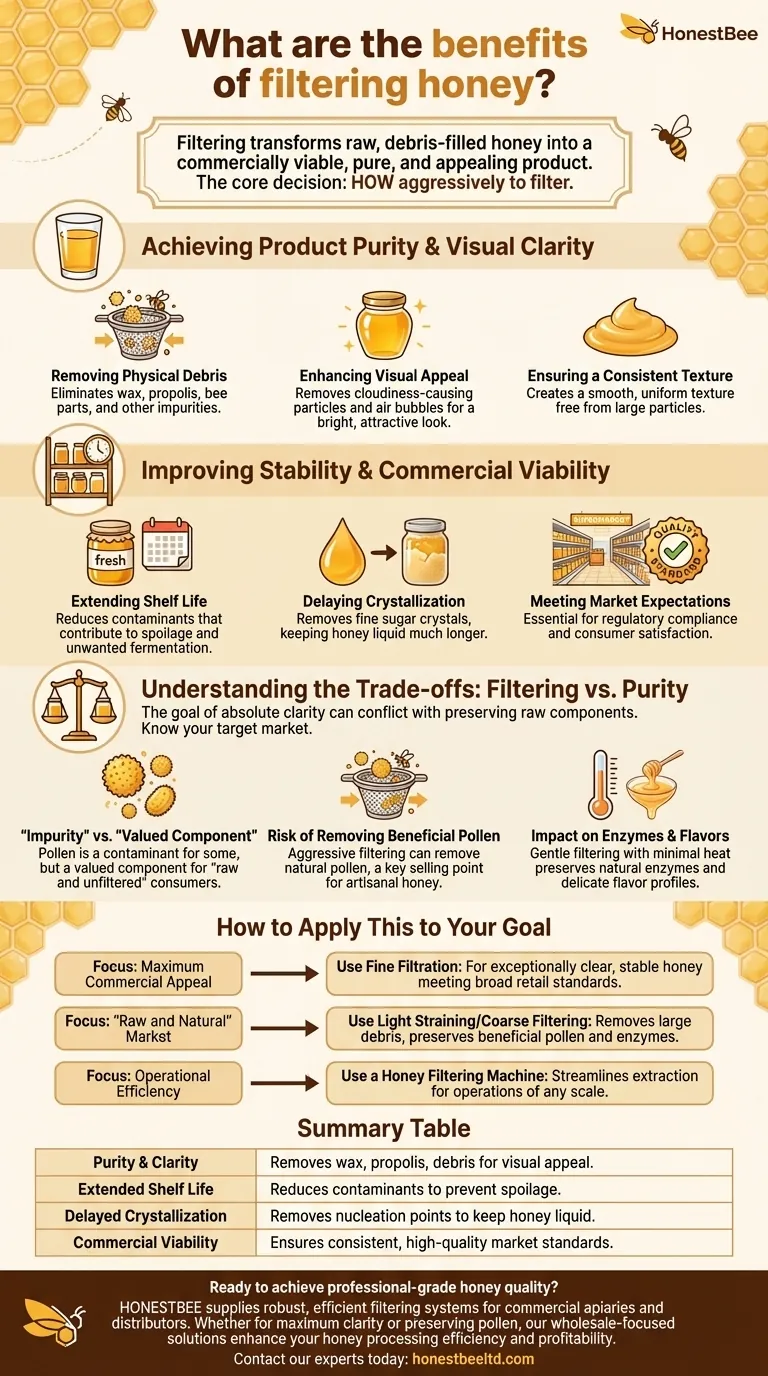
Related Products
- Stainless Steel Triangle Support Honey Strainer and Filters
- Honey Concentrating and Filtering Dehumidifier Machine 2T Capacity for Honey
- Easy Use Manual Stainless Steel Honey Press for Honey Comb
- Stainless Steel Manual 8 Frame Radial Honey Extractor Machine for Beehives
- Premium Diamond-Faceted Glass Honey Dispenser
People Also Ask
- How does a double sieve honey strainer work? Achieve Crystal Clear Honey with Professional Two-Stage Filtration
- What is the overall importance of using the right equipment in honey filtering? Boost Quality & Marketability
- What is the easiest way to strain honey? A Simple Guide for Hobbyist Beekeepers
- How does honey filtering and storage equipment affect market value? Maximize Profits with Single-Origin Quality
- What is the function of honey sieves, strainers, and filters in processing? Master the 3 Stages of Honey Purity




